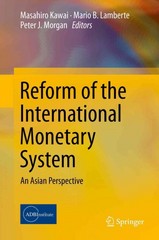Question
Brooks, Leonard J., Paul Dunn. Business & Professional Ethics for Directors, Executives & Accountants, 5th Edition. Cengage Learning, 03/2009. VitalBook file. Ethics Case: 'Locker Room
Brooks, Leonard J., Paul Dunn. Business & Professional Ethics for Directors, Executives & Accountants, 5th Edition. Cengage Learning, 03/2009. VitalBook file.
Ethics Case: 'Locker Room Talk' Albert Gable is a partner in a CPA firm located in a small midwestern city, which has a population of approximately 65,000. Mr. Gable's practice is primarily in the area of personal financial planning; however, he also performs an annual audit on the city's largest bank. Recently, Mr. Gable was engaged by Larry and Susan Wilson to prepare a comprehensive personal financial plan. While preparing the plan, Mr. Gable became personal friends of the Wilsons. They confided to him that they have had a somewhat rocky marriage and, on several occasions, seriously discussed divorce. Preparation of the comprehensive personal financial plan, which is nearing completion, has taken six months. During this period, Mr. Gable also performed the annual audit for the bank. The audit test sample selected at random from the bank's loan file included the personal loan files of Larry and Susan Wilson. Because certain information in the loan files did not agree with facts personally known to Mr. Gable, he became somewhat concerned. Although he did not disclose his client relationship with the Wilsons, he did discuss their loan in detail with a loan officer. The loan officer is very familiar with the situation because he and Larry Wilson were college classmates, and now they play golf together weekly. The loan officer mentioned to Mr. Gable that he believed Larry Wilson was "setting his wife up for a divorce." In other words, he was arranging his business affairs over a period of time so that he would be able to "leave his wife penniless." The loan officer indicated that this was just "locker room talk" and that Mr. Gable should keep it confidential. Mr. Gable's compensation from his firm is based upon annual billings for services. If Mr. Gable resigns as CPA for the Wilsons, it would result in his losing a bonus constituting a substantial amount in annual personal compensation. Mr. Gable is counting on the bonus to contribute to support tuition and expenses for his youngest daughter, who will be starting as a freshman in college next fall.
Questions:
1) Explain the consequences in each scenario
A)Gable quits as the Wilson's CPA
B)Do neither a) nor b) ...Stays with the audit and as CPA for the Wilsons
2)What should Albert Gable do? Here you are required to refer to one of the ethical theories (Virtue Ethics, Deontology, Consequentialism)
Step by Step Solution
There are 3 Steps involved in it
Step: 1

Get Instant Access to Expert-Tailored Solutions
See step-by-step solutions with expert insights and AI powered tools for academic success
Step: 2

Step: 3

Ace Your Homework with AI
Get the answers you need in no time with our AI-driven, step-by-step assistance
Get Started


